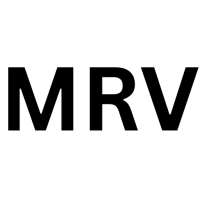Summary
Cut through the green tape
We don't push agendas. At Net Zero Compare, we cut through the hype and fear to deliver the straightforward facts you need for making informed decisions on green products and services. Whether motivated by compliance, customer demands, or a real passion for the environment, you’re welcome here. We provide reliable information—why you seek it is not our concern.
Details
- European Union
Deep dive
Introduction
The European Union's Monitoring, Reporting, and Verification (MRV) Regulation, established under Regulation (EU) 2015/757, represents the pillar of the EU’s strategy to decarbonize maritime transport. Amended in 2023 by Regulation (EU) 2023/957, the MRV Regulation expands its scope to include not only carbon dioxide (CO₂) but also methane (CH₄) and nitrous oxide (N₂O) emissions from ships, aligning with the broader "Fit for 55" package aimed at reducing greenhouse gas (GHG) emissions by 55% by 2030. Implemented by the European Maritime Safety Agency (EMSA) in collaboration with the European Commission’s Directorate-General for Climate Action (DG CLIMA), the regulation builds upon earlier maritime environmental policies by introducing systematic emissions tracking. It serves as the foundation for the EU Emissions Trading System (ETS) for shipping, which began phasing in from 2024. The MRV regulation, together with the FuelEU Maritime Regulation, signals the EU's commitment to integrating maritime transport into its climate neutrality goals.
Reporting Requirements
Under the MRV Regulation, shipping companies must monitor and report CO₂ emissions, and from 2024, methane (CH₄) and nitrous oxide (N₂O) emissions as well. Companies are required to prepare a monitoring plan for each ship, detailing the methodologies for data collection. Annually, by March 31, verified emissions reports must be submitted to the European Commission, the relevant flag state authorities, and the administering authority via the THETIS-MRV platform, a centralized system managed by EMSA. These reports should include data such as fuel consumption, distance traveled, time at sea, and cargo carried. Additionally, from 2025, companies must submit aggregated emissions data at the company level, which will be used for compliance with the EU ETS.
Affected Entities
The MRV Regulation initially applied to ships over 5,000 gross tonnage (GT) operating in or to/from EEA ports, but as of 2025, it extends to general cargo ships (400–5,000 GT) and offshore vessels (≥400 GT). Exemptions include warships, fishing vessels, and non-mechanically propelled ships. While the exact number of reporting companies is not specified, the regulation affects thousands of vessels, given the global nature of shipping and the EU’s extensive port network. Responsibility typically falls on the registered shipowner or the International Safety Management (ISM) Company (if delegated), with each company assigned to an administering authority in an EU Member State.
Penalties for Non-Compliance
Non-compliance with MRV reporting obligations can result in significant penalties, including fines and potential detention of vessels by port state control authorities. Companies failing to submit verified emissions reports by the deadline or submitting inaccurate data may face enforcement actions under national laws of Member States, which are required by the MRV regulations to implement "effective, proportionate, and dissuasive" penalties. In Germany, for example, shipping companies that fail to submit emissions reports or miss reporting deadlines may be subject to fines of up to €50,000. Moreover, non-compliant ships risk losing access to EEA ports, as the Document of Compliance (DoC) must be carried onboard and verified annually.


